Your Essential Dutch Survival Guide: 200+ Terms Every Newcomer Needs to Know
Moving to the Netherlands and feeling overwhelmed by the language barrier? You're not alone. Whether you've just arrived in Almere or anywhere else in the Netherlands, navigating daily life becomes infinitely easier when you know the key Dutch terms that are used every day.
LANGUAGE
5/8/20244 min read
Moving to the Netherlands and feeling overwhelmed by the language barrier? You're not alone. Whether you've just arrived in Almere or anywhere else in the Netherlands, navigating daily life becomes infinitely easier when you know the key Dutch terms that locals use every day.


Why This Guide Matters
Picture this: You're at the gemeente (city hall) trying to get your BSN (social security number), but you don't understand what the clerk is asking for. Or you're house hunting and keep seeing terms like "sociale huur" and "borg" that Google Translate doesn't quite explain in context. These moments of confusion are exactly why we created this comprehensive Dutch vocabulary guide.
What You'll Find Here
This isn't your typical tourist phrasebook. We've compiled over 200 essential Dutch terms organized into practical categories that reflect real expat life:
Government & Official Services - Navigate Dutch bureaucracy like a pro
Housing & Registration - Master the rental market and registration process
Banking & Finance - Handle your banking and finance with confident
Healthcare - Handle your essential services confidently
Transportation - Make the most of excellent Dutch public transport
Work & Employment - Understand your rights and responsibilities
Emergency Situations - Stay safe with critical vocabulary
Perfect for Every Newcomer
Whether you're:
🎓 An international student starting university
💼 A skilled migrant beginning a new job
👨👩👧👦 A family relocating for a fresh start
🏡 Someone considering a move to Almere or elsewhere in the Netherlands
This guide gives you the linguistic foundation to handle daily tasks without constantly reaching for translation apps.
Beyond Just Words
Each term includes practical context about when and how it's used. We distinguish between formal and informal language, so you'll know whether to use "alstublieft" or "alsjeblieft" depending on the situation. No more awkward moments wondering if you're being too casual with government officials or too formal with neighbors!
Your Integration Fast-Track
Learning these terms isn't just about communication—it's about confidence. When you understand what's being discussed around you, when you can read official letters without panic, when you can participate in conversations about everyday topics, you're not just surviving in the Netherlands—you're beginning to thrive.
Save this guide, bookmark it, print it out, or keep it handy on your phone. In a few months, you'll be amazed at how naturally these once-foreign words roll off your tongue.
💡 Pro tip: Don't try to memorise everything at once. Focus on one category at a time based on your immediate needs. Moving house? Start with the housing section. Job hunting? Dive into work terminology first. This targeted approach makes learning more manageable and immediately useful.
🔗 Coming up next: Stay tuned for our pronunciation guide and common Dutch phrases that will help you sound more natural in conversations!
Government & Official Services
Gemeente - Municipality
Gemeentehuis - City hall/Town hall
GBA/BRP - Personal Records Database (population register)
BSN (Burgerservicenummer) - Citizen Service Number (social security number)
DigiD - Digital identity for government services
Uittreksel GBA/BRP - Extract from population register
Rijbewijs - Driver's license
Kenteken - License plate
Paspoort - Passport
Identiteitskaart - ID card
Verblijfsvergunning - Residence permit
Naturalisatie - Naturalization
Inschrijven - To register
Uitschrijven - To unregister/deregister
Housing & Registration
Huur - Rent
Huurcontract - Rental contract
Verhuurder - Landlord
Huurder - Tenant
Borg/Waarborgsom - Deposit
Woning - Home/dwelling
Appartement - Apartment
Eengezinswoning - Single-family house
Studio - Studio apartment
Kamer - Room
Adreswijziging - Change of address
Inschrijving adres - Address registration
Woningnet - Social housing platform
Corporatie - Housing association
Sociale huur - Social rental housing
Vrije sector - Private rental market
Banking & Finance
Bank - Bank
Bankrekening - Bank account
Pinpas/Betaalpas - Debit card
Pinnen - To use debit card (PIN payment)
Contant - Cash
IBAN - International bank account number
Overschrijving - Bank transfer
Saldo - Balance
Hypotheek - Mortgage
Verzekering - Insurance
Belasting - Tax
BTW - VAT (value-added tax)
Aangifte - Tax return/declaration
Healthcare
Zorgverzekering - Health insurance
Huisarts - General practitioner (GP)
Praktijk - Medical practice
Afspraak - Appointment
Ziekenhuis - Hospital
Apotheek - Pharmacy
Recept - Prescription
Eigen risico - Deductible (health insurance)
Verwijzing - Referral
Specialist - Medical specialist
Spoedeisende hulp (SEH) - Emergency room
Ambulance - Ambulance
Tandarts - Dentist
Transportation
OV (Openbaar Vervoer) - Public transport
OV-chipkaart - Public transport card
Trein - Train
Bus - Bus
Tram - Tram
Metro - Metro/subway
Fiets - Bicycle
Fietspad - Bicycle path
Station - Station
Halte - Stop (bus/tram)
Kaartje - Ticket
Abonnement - Subscription
Opstappen - To get on
Uitstappen - To get off
Work & Employment
Werk - Work
Baan - Job
Werkgever - Employer
Werknemer - Employee
Contract - Contract
Solliciteren - To apply for a job
CV - Resume/CV
Salaris/Loon - Salary/wage
Uitkering - Benefit/allowance
Werkloosheidsuitkering (WW) - Unemployment benefit
UWV - Employee Insurance Agency
Pensioen - Pension
Vakantiedagen - Vacation days
Ziekteverlof - Sick leave
Emergency & Safety
Politie - Police
Brandweer - Fire department
Ambulance - Ambulance
Noodgeval - Emergency
112 - Emergency number
Gevaar - Danger
Veilig - Safe
Help - Help
Dief - Thief
Ongeval - Accident
Education
School - School
Universiteit - University
Hogeschool - University of applied sciences
Student - Student
Leraar/Docent - Teacher
Les - Lesson/class
Diploma - Diploma/degree
Inschrijven - To enroll
Studiefinanciering - Student financial aid (DUO)
Collegegeld - Tuition fee
Time & Schedule
Vandaag - Today
Morgen - Tomorrow
Gisteren - Yesterday
Week - Week
Maand - Month
Jaar - Year
Tijd - Time
Uur - Hour
Minuut - Minute
Vroeg - Early
Laat - Late
Op tijd - On time
Weather (Very Important in NL!)
Weer - Weather
Regen - Rain
Zon - Sun
Wind - Wind
Sneeuw - Snow
Bewolkt - Cloudy
Koud - Cold
Warm - Warm
Nat - Wet
Droog - Dry
Useful Expressions
Geen idee - No idea
Dat klopt - That's right
Dat klopt niet - That's not right
Wat betekent dat? - What does that mean?
Hoe zeg je ... in het Nederlands? - How do you say ... in Dutch?
Ik ben verdwaald - I am lost
Kunt u dat opschrijven? - Can you write that down?
Shopping & Services
Winkel - Shop/store
Supermarkt - Supermarket
Kassa - Cash register/checkout
Kassabon - Receipt
Korting - Discount
Aanbieding - Special offer
Uitverkoop - Sale
Open - Open
Gesloten - Closed
Openingstijden - Opening hours
Post - Mail/post office
Pakket - Package
Bezorgen - To deliver
Understanding Formal vs Informal Dutch: When to Use "U" vs "Je"
One of the most important aspects of Dutch language for newcomers to master is knowing when to be formal or informal. Getting this wrong can make you seem rude or overly distant, so understanding these distinctions will help you navigate social and professional situations with confidence.
The Formal Approach: U, Uw, Alstublieft
When to Use Formal Language
Always use formal language with:
Government officials (gemeente, tax office, immigration services)
Healthcare professionals (doctors, specialists, hospital staff)
Your boss or senior colleagues (initially)
Elderly people you don't know well
Customer service representatives
Police officers
Teachers/professors (in most cases)
Anyone in a professional service role
Strangers who are clearly older than you
Formal Pronouns and Possessives
U - You (formal)
"Kunt u me helpen?" - Can you help me?
"Waar woont u?" - Where do you live?
Uw - Your (formal possessive)
"Wat is uw naam?" - What is your name?
"Is dit uw adres?" - Is this your address?
Formal Politeness
Alstublieft - Please / Here you go (formal)
"Alstublieft, uw paspoort" - Please, your passport
"Kunt u alstublieft langzamer spreken?" - Can you please speak slower?
The Informal Approach: Je, Jouw, Alsjeblieft
When to Use Informal Language
Use informal language with:
Children and teenagers
Friends and family
Colleagues your age or younger (after some time)
Fellow students
Casual acquaintances
People in informal settings (bars, parties, sports clubs)
When someone explicitly tells you to use "je"
Informal Pronouns and Possessives
Je - You (informal)
"Kun je me helpen?" - Can you help me?
"Waar woon je?" - Where do you live?
Jouw - Your (informal possessive)
"Wat is jouw naam?" - What is your name?
"Is dit jouw fiets?" - Is this your bike?
Informal Politeness
Alsjeblieft - Please / Here you go (informal)
"Alsjeblieft, je koffie" - Here you go, your coffee
"Kun je alsjeblieft wat zachter praten?" - Can you please speak a bit quieter?
Making the Transition: From "U" to "Je"
When Someone Offers "Je"
Dutch people might say:
"Je mag wel 'je' zeggen" - You can say 'je' (use informal)
"Zeg maar je" - Just say 'je'
"Laten we 'je' zeggen" - Let's use 'je'
Your response: "Oké, prima!" (Okay, fine!) or "Dank je!" (Thanks!)
Age-Based Guidelines
Under 30: Often informal after initial introductions
30-50: Depends on context; professional = formal, social = often informal
Over 50: Usually formal unless they specifically suggest otherwise
Much older: Almost always formal
Expat Info Almere
GET IN TOUCH
© 2025, Expat Info Almere. All rigths reserved.
info@expatinfoalmere.com


